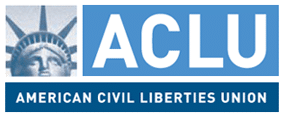The goal of the campaign, financed by George Soros’s Open Society Foundations, is to slash an incarceration rate that has tripled since 1980. There are currently some 2.2 million prisoners in the United States.
The campaign aims to translate into state and federal policy a growing belief among many scholars, as well as of a coalition of liberal, conservative and libertarian political leaders, that the tough-on-crime policies of recent decades have become costly and counterproductive.
In that view, widespread drug arrests and severe mandatory sentences are doing more to damage poor communities, especially African-American ones, than to prevent crime, and building ever more prisons that mostly turn out repeat offenders is a bad investment.
The campaign is likely to face strong opposition from some law enforcement officials, prosecutor groups and conservative experts who argue that tough sentencing policies have played an important role in driving down crime rates. The Republican electoral victories this week could also stiffen resistance to sweeping change.
The grant is going to the political arm of the A.C.L.U., which has far more leeway to lobby for laws, run ads on television and finance political action committees to promote candidates than the group’s larger, traditional branch, which relies more on litigation. As a result, the money is not tax-deductible.
While the A.C.L.U. has often been associated with liberal causes like ending the death penalty and promoting same-sex marriage, Anthony D. Romero, the group’s executive director, said the organization was building ties with conservative leaders promoting alternatives to incarceration and would not hesitate to aid Republican candidates who support needed steps.
“I think criminal justice reform is one of the few issues where you can break through the partisan gridlock,” Mr. Romero said, adding that the group would seek out Republican lobbying firms to help reach legislators.
In the latest example of converging views, conservatives including Newt Gingrich and B. Wayne Hughes Jr., a Christian philanthropist, joined the Soros-led foundation and the A.C.L.U. in support of Proposition 47, a California ballot measure to redefine many lower-level felonies, including possession for personal use of hard drugs, as misdemeanors. The change, which passed by a wide margin on Tuesday, is expected to keep tens of thousands of offenders out of prison and save the state hundreds of millions of dollars each year.
The Koch brothers, major funders of conservative causes and candidates, have joined in. Koch Industries recently gave a grant “of significant six figures” to the National Association of Criminal Defense Lawyers to support the defense of indigents, said Mark Holden, senior vice president and general counsel at Koch Industries.
“Whether the human cost or the societal cost, what we’re doing in the criminal justice system isn’t working,” Mr. Holden said. “We’re finding common ground with people with different political affiliations,” he said, praising the advocacy work of the A.C.L.U. in this field.
The A.C.L.U. campaign will be directed by Alison Holcomb, who led the effort in Washington State to legalize marijuana.
The group plans to use ads to insert issues like drug policy, mandatory sentences and prison re-entry into early primary states in the presidential elections, such as Iowa and New Hampshire, and then in key battlegrounds like Pennsylvania and Florida, Mr. Romero said.
It will also develop a state-by-state database describing who is in prison for what crimes and then target local politicians and prosecutors who promote what Mr. Romero called “overincarceration.”
Mr. Romero said the goal of the campaign was to reduce incarceration by 50 percent in eight years.
Todd R. Clear, a criminologist and the provost of Rutgers University-Newark, said he agreed that the time was right for a major shift in justice policies. Efforts to reduce probation revocations and to lighten sentences, especially for nonviolent crimes, have already brought reductions or headed off growth in prisoner numbers in a number of states, he noted, while the federal government is reducing penalties for some drug crimes, although bipartisan bills that would overhaul federal sentencing did not pass this year.
But he cautioned that to achieve a decline anywhere near as steep as that proposed by the A.C.L.U., far more politically contentious changes would be necessary.
“We’ll have to make sentencing reforms for violent crime, too,” he said, including major changes in drug laws and the multidecade sentences often imposed on violent or repeat offenders.
Mr. Soros and the Open Society Foundations have long promoted these kinds of changes in American criminal policies, investing roughly $175 million in them since 2004, plus an additional $62.5 million aimed at legalizing marijuana and reducing drug penalties.
“I think you see a growing consensus that the criminal justice system in America is broken and this is a time to try new approaches,” said Christopher Stone, president of the Open Society Foundations and a criminal justice expert, explaining why the group had made the large grant to the A.C.L.U. at this time.”


